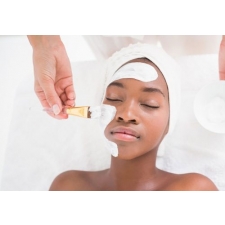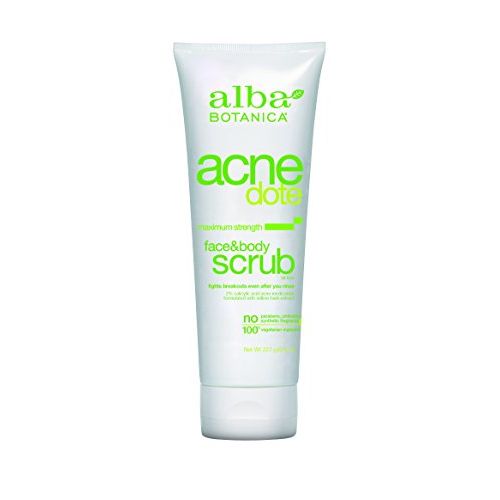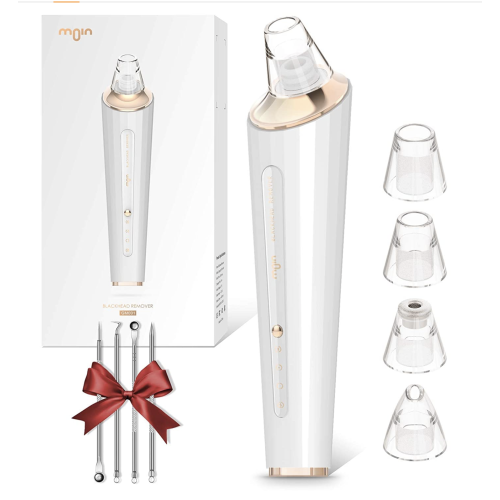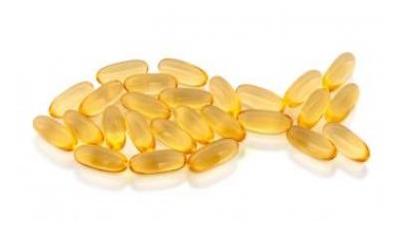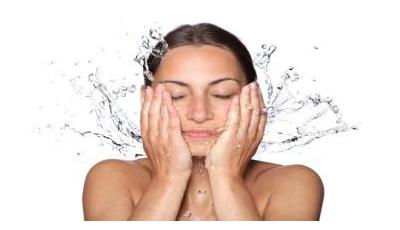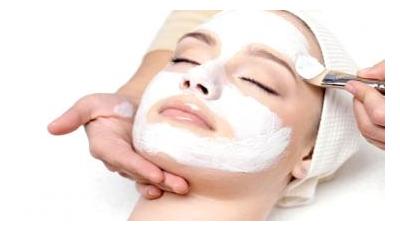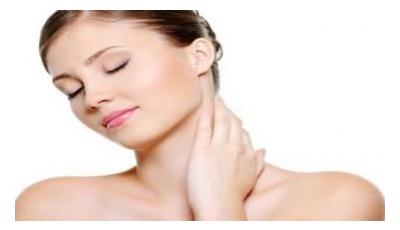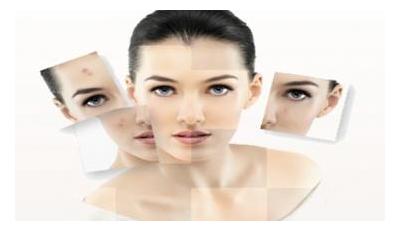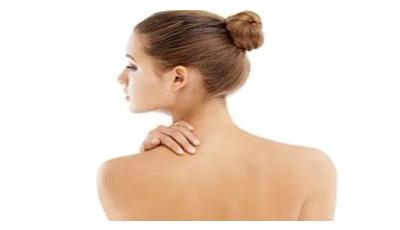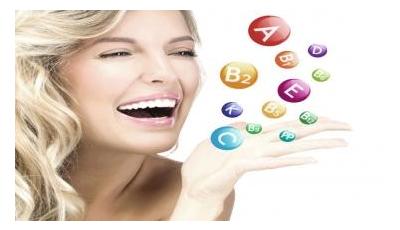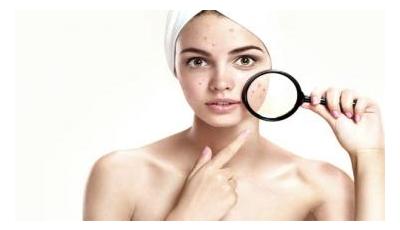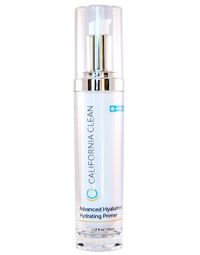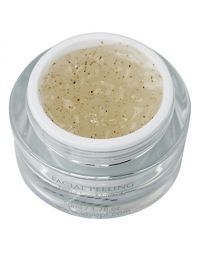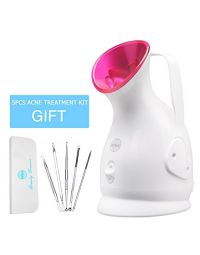Blackheads are a type of acne but are not inflamed like pustules or pimples. Managing blackheads is similar to taking care of more severe types of acne but does not involve such strong medications. Proper hygiene can help clear them up and keep them from developing.

How Are Blackheads Formed?
Blackheads are a type of comedone, an acne lesion. They are caused by pores that get clogged with oil, dead skin cells, and bacteria. Unlike whiteheads, the pores remain open to the air, so the oil mix becomes oxidized and turns dark.1
Because of the coloration, many people think that blackheads are the result of dirt stuck in pores. In actuality, dirt from the environment is not the cause. Often, excess oil from your oil glands (sebaceous glands) in your hair follicles is to blame. This stops up the pore and doesn’t allow liquid oil to be secreted normally.1
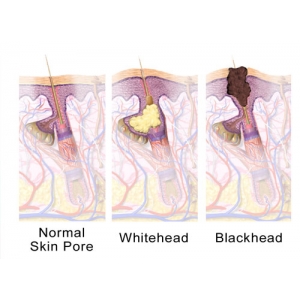

Keep Your Skin Clean- But Don’t Clean Too Much
Facial hygiene is always important for keeping your skin healthy and free from pollutants, allergens, and pathogens like viruses. However, you need to be careful when cleaning your face. Scrubbing too hard or removing too much oil can dry your skin out or irritate it.
For a basic routine, use a gentle facial cleanser once per day. Face washes that are labelled “hyposensitive” or for sensitive skin are a good place to start. You can also use diluted baby shampoo or simply warm water on a soft cloth. A brief wash can help remove dead skin and excess oil without stripping too much oil off or causing irritation. You may need to adjust your routine according to your skin’s specific needs.2
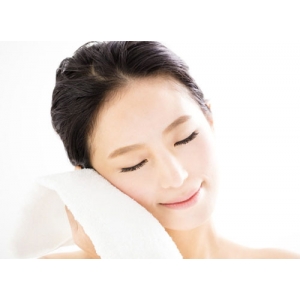

Reduce Oil Production
Since excessive oil can cause pore blockages, keeping oil production under control can help reduce blackheads.
You should also make sure you aren’t adding extra oil to your face or other acne-prone areas. Avoid oily makeup, lotions, or sunscreens. Look for sunscreens, moisturizers, and other cosmetic products that are labelled as “non-comedogenic.”2
Certain foods you eat can increase oil production in your skin. You may be surprised to learn that greasy foods are not among these. Rather, these are foods that can interfere with your body’s hormone levels.2 Such foods include:
- Dairy products and meat raised with growth hormones (look for RBST or hormone-free milk and beef)
- Sugar (blood glucose and insulin spikes will increase oil output)
- Refined flour (refined carbohydrates also cause blood glucose spikes)
- Trans fats
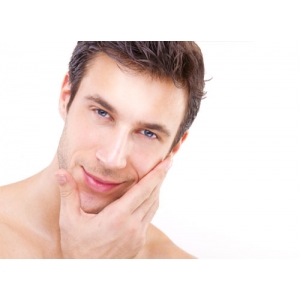

Comedolytic Agents- Acne Medications
The word comedolytic means “comedone-destroying.” Comedolytic agents are pharmaceutical drugs that break up clogs and clear out pores. They also help dead skin slough off more easily. This keeps dead skin cells from building up and contributing to pore blockages.
Comedolytic medications can be either over-the-counter or prescription. Salicylic acid is an over-the-counter ingredient which helps remove dead skin and is often used in facial peels. Stronger medications like retinoids come with some adverse effects and must be prescribed by a doctor like a dermatologist.2, 3
Recommended: Try Acne Dote Face & Body Scrub with Salicylic acid to help treat blackheads and prevent them from coming back.

Blackhead Extraction
Since blackheads are open, unlike whiteheads which are blocked by the pores’ linings, the clogs can be removed physically. Specialized devices are used to gently pull the clogging material out. This can be done by a dermatologist or at home with the right equipment. Blackhead extraction needs to be done carefully since it can cause scarring.5
Recommended: Try a Blackhead Remover Pore Vacuum Cleaner Acne Comedo Extractor
[1] HC Williams, RP Dellavalle, and S Garner. 2012. "Acne vulgaris." Lancet. 379(9813):361-72.
[2] 2018. "Acne."Mayo Clinic. Mayo Foundation for Medical Education and Research. https://www.mayoclinic.org/diseases-conditions/acne/diagnosis-treatment/drc-20368048.
[3] AL Chien, J Qi, B Rainer, DL Sachs, and YR Helfrich. 2016. "Treatment of Acne in Pregnancy." J Am Board Fam Med. 29(2):254-62.
[4] V Mazzarello, MG Donadu, M Ferrari, G Piga, D Usai, S Zanetti, and MA Sotgiu. 2018. "Treatment of acne with a combination of propolis, tea tree oil, and Aloe vera compared to erythromycin cream: two double-blind investigations." Clin Pharmacol. 10175-181.
[5] EM Wise and EM Graber. 2011. "Clinical pearl: comedone extraction for persistent macrocomedones while on isotretinoin therapy." J Clin Aesthet Dermatol. 4(11):20-1.
-
Cod Liver Oil Benefits for Skin and Hair
March 8, 2022 -
Face Washes for Acne
By Dr. KarenDecember 28, 2021 -
Acne Scar Removal
By Dr. KarenDecember 28, 2021 -
Laser Treatment for Acne
By Dr. KarenDecember 28, 2021 -
Back Acne
December 29, 2021 -
Acne Vitamins
By Dr. KarenMarch 8, 2022 -
Hyaluronic Acid for Acne
By Dr. AnnaDecember 17, 2021
Search the blog
Article Categories
- All Articles (95)
- Rating Charts (1)
- Beauty & Skincare (17)
- FAQ (0)
- Hair Care (9)
- Health & Wellness (12)
- Anti-Aging (4)
- Kid's Health (0)
- Makeup (2)
- Men's Health (2)
- Oral Care (3)
- Sunscreen (7)
- Skin Tools & Treatments (10)
- Supplements (26)
- Videos (0)

